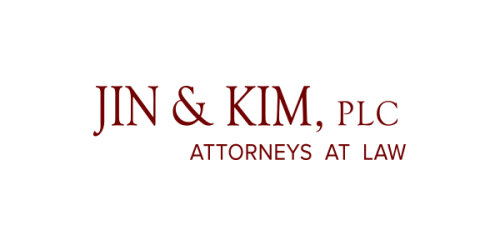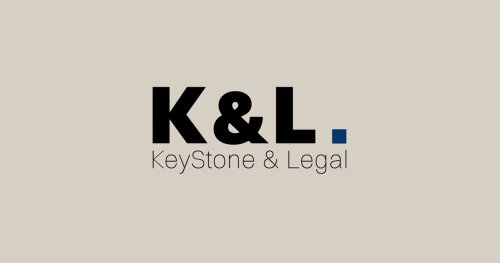Best Business Lawyers in South Korea
Share your needs with us, get contacted by law firms.
Free. Takes 2 min.
Or refine your search by selecting a city:
List of the best lawyers in South Korea
About Business Law in South Korea
South Korea, known for its rapid industrialization and advanced technology sector, presents a dynamic environment for businesses. The country boasts a robust business law framework designed to support both domestic and foreign enterprises. South Korean business law encompasses various areas such as company law, contractual law, intellectual property rights, labor law, and taxation. Understanding these regulations is crucial for anyone involved in the business sector, from entrepreneurs to established companies looking to operate in South Korea.
Why You May Need a Lawyer
Navigating the complex legal landscape of South Korea can be challenging, especially for those unfamiliar with local regulations and business practices. Common situations where legal assistance may be required include:
- Establishing a business entity (such as a corporation or joint venture).
- Understanding and complying with employment laws and labor relations.
- Securing and protecting intellectual property rights.
- Drafting and reviewing contracts with suppliers, partners, or customers.
- Resolving disputes through negotiation, mediation, or litigation.
- Adhering to regulatory compliance, including taxation and financial reporting.
- Handling mergers, acquisitions, and other significant business transactions.
Local Laws Overview
South Korean business law encompasses several key aspects that are pivotal for business success:
- Company Law: Governs the formation, operation, and dissolution of companies. The most common business entity is the "yuhan hoesa" (LLC) and "jusik hoesa" (corporation).
- Contract Law: Based on the Korean Civil Code, contract law governs agreements between parties, with an emphasis on fairness and good faith.
- Intellectual Property: South Korea has strict IP laws to protect patents, trademarks, and copyrights, crucial for businesses dealing in technology and innovation.
- Employment Law: Includes regulations on working conditions, employee rights, and business obligations under the Labor Standard Act.
- Tax Law: Businesses must comply with the National Tax Service regulations, including corporate tax, VAT, and other financial obligations.
- Competition Law: The Monopoly Regulation and Fair Trade Act prevents anti-competitive practices to ensure a fair market environment.
Frequently Asked Questions
What are the basic requirements for forming a company in South Korea?
You need to choose a business structure, conduct a name search, prepare articles of association, and register with the appropriate government authorities.
How are intellectual property rights protected in South Korea?
IP rights are protected under various acts, including the Patent Act, Trademark Act, and Copyright Act, ensuring robust protection and enforcement mechanisms.
What should you consider when drafting a business contract in South Korea?
Contracts should clearly detail the obligations, rights, and responsibilities of all parties, and adhere to Korean contract law principles.
Are there any restrictions for foreign businesses operating in South Korea?
While South Korea is generally open to foreign businesses, certain industries may have restrictions or require specific approvals.
What labor laws do businesses need to comply with?
Key labor laws include the Labor Standards Act, which covers employment terms, working hours, and worker protection rights.
How is commercial litigation conducted in South Korea?
Commercial disputes can be resolved through litigation in South Korean courts, or alternatively, via arbitration, which is a popular choice for businesses.
What are the tax obligations for businesses in South Korea?
Businesses must register with the National Tax Service and comply with various tax obligations, including corporate tax, VAT, and potential international tax treaties.
How does merger and acquisition law work in South Korea?
Mergers and acquisitions are regulated by the Korean Commercial Act, requiring thorough due diligence and adherence to competition laws.
What is the process for resolving a business dispute?
Disputes can be resolved through negotiation, mediation, arbitration, or court litigation, depending on the complexity and nature of the issue.
How does South Korea address anti-competitive practices?
The Monopoly Regulation and Fair Trade Act prohibits unfair business practices, abuse of dominance, and cartel formations to maintain market competition.
Additional Resources
There are various resources that can assist with legal advice in the business domain in South Korea:
- Ministry of Justice: Provides legal guidance and updates on changes in business law.
- Korean Commercial Arbitration Board: Offers arbitration services for resolving commercial disputes.
- Korea Intellectual Property Office: Manages intellectual property rights and enforcement.
- Embassy and Consulate Resources: Foreign embassies can offer assistance for expatriate businesses or inquiries.
- Korean Bar Association: Can help find specialized business law attorneys.
Next Steps
If you need legal assistance in business law, consider the following steps:
- Identify your specific legal needs and gather relevant documentation.
- Research and reach out to law firms or attorneys specializing in business law in South Korea.
- Arrange consultations to discuss your situation and understand the potential costs involved.
- Choose a legal representative with expertise in your specific area of need and establish a clear communication channel.
- Work with your lawyer to develop a legal strategy, comply with local regulations, and ensure the long-term success of your business.
Lawzana helps you find the best lawyers and law firms in South Korea through a curated and pre-screened list of qualified legal professionals. Our platform offers rankings and detailed profiles of attorneys and law firms, allowing you to compare based on practice areas, including Business, experience, and client feedback.
Each profile includes a description of the firm's areas of practice, client reviews, team members and partners, year of establishment, spoken languages, office locations, contact information, social media presence, and any published articles or resources. Most firms on our platform speak English and are experienced in both local and international legal matters.
Get a quote from top-rated law firms in South Korea — quickly, securely, and without unnecessary hassle.
Disclaimer:
The information provided on this page is for general informational purposes only and does not constitute legal advice. While we strive to ensure the accuracy and relevance of the content, legal information may change over time, and interpretations of the law can vary. You should always consult with a qualified legal professional for advice specific to your situation.
We disclaim all liability for actions taken or not taken based on the content of this page. If you believe any information is incorrect or outdated, please contact us, and we will review and update it where appropriate.
Browse business law firms by service in South Korea
South Korea Attorneys in related practice areas.
Browse business law firms by city in South Korea
Refine your search by selecting a city.
















